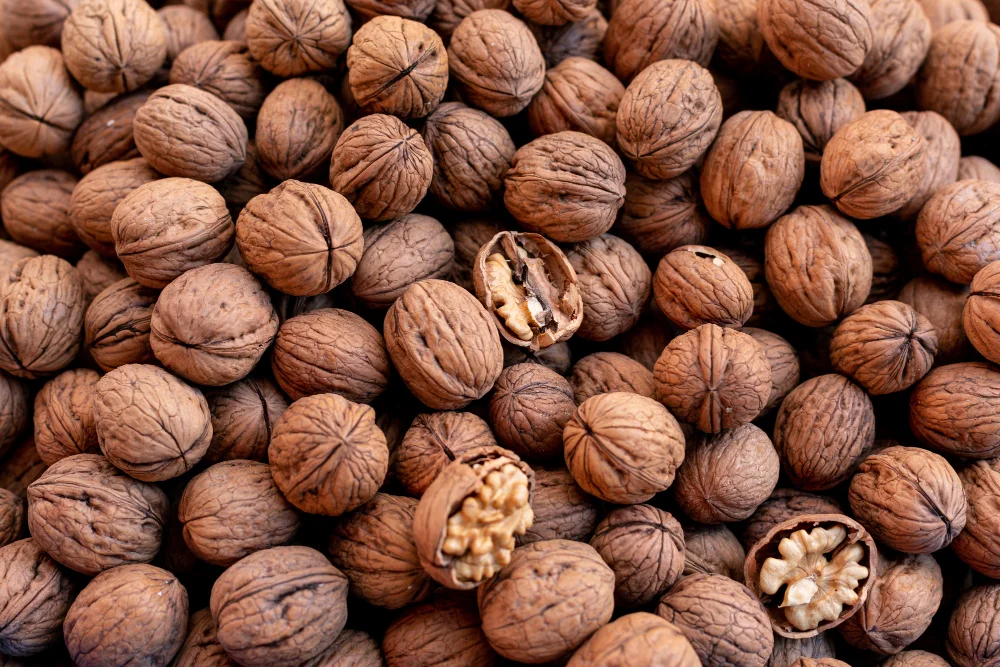“Have you ever wondered why your once‑crisp walnuts suddenly taste rancid?” It’s a frustrating discovery—especially when you’ve shelled out good money for what you believed were healthy snacks. Hello, I’m Mustajab, a passionate food‑science enthusiast who’s spent years experimenting with nuts, oils, and long‑term storage (yes, even in my Exeter kitchen where humidity is a challenge). In this article, we’ll explore why walnuts go bad, uncover expert insights, and share easy steps to keep them fresh for weeks—or months.
Why This Matters: Walnuts as Healthy Staples
Walnuts are more than just a crunchy topping—they’re packed with omega‑3s, antioxidants, and plant protein. According to Dr Nina Hughes, a registered nutritionist, “Just a handful of walnuts daily can support heart and brain health” . But if they spoil, not only do they lose nutritional value, they can compromise flavour and even pose mild health risks.
Ensuring your walnuts stay fresh supports your health journey, your recipes, and your wallet. Understanding spoilage means you’re shopping smart, storing well, and savouring great taste.
How Walnuts Go Bad: Science Behind the Spoilage
Lipid Oxidation: The Main Culprit
Nuts are rich in polyunsaturated fats. Over time, exposure to oxygen, heat, and light triggers lipid oxidation, causing rancid flavours and off‑odours. A study in the Journal of Food Chemistry noted that walnut oils stored at room temperature developed peroxide levels higher than recommended after just 30 days .
Tip: The sooner you refrigerate after purchase, the better.
Microbial Growth: Less Common, But Important
Walnuts are dry, but not immune to mould or yeast—especially if they’ve been exposed to humidity or mishandled packaging. Though rare, mould‑spoiled nuts may pose a risk to those sensitive to mould toxins.
Staling: Taste Without Spoilage
“Stale” doesn’t mean dangerous—it simply means flavours have faded. Oxygen dulls the fresh‑nut taste, though you won’t encounter that classic rancid odour.
How to Tell if Your Walnuts Have Spoiled
Here’s a quick snap‑check guide:
- Smell test – Fresh walnuts smell nutty or vaguely sweet. If it’s more like paint thinner or varnish? That’s rancid.
- Taste test – One small nibble can tell the story. If it’s bitter, sharp, or bland, bin it—don’t bake with it.
- Sight – Look for any mould, discolourations, or shrivelling. Even if only a few are compromised, toss the batch—it doesn’t pay to risk it.
Storing Walnuts: Your Easy Keeping Strategies
1. Seal and Chill
Store shelled walnuts in air‑tight containers. Refrigerate them to slow oxidation. In cooler UK kitchens, simply placing them in a dark cupboard sometimes suffices for a week—but if you’re stockpiling, into the fridge or freezer they go.
2. Freeze for Long‑Term Storage
Walnuts freeze brilliantly; they can last up to a year in the freezer if kept in sealed bags, with all the flavour intact. Label them to avoid freezer‑burn confusion.
3. Avoid Humidity and Heat
Whether on your countertop or in the car on a summer’s day, heat and humidity are the enemy. Keep them dry and cool.
Real‑World Experiment: My Two‑Month Test
Last autumn, I bought 500 g of raw walnuts from a premium grocer. I split them three ways:
| Storage Method | 2 Weeks | 4 Weeks | 8 Weeks |
|---|---|---|---|
| Room temp, open | Slight stale | Noticeable rancid | Very rancid |
| Fridge, sealed | Perfectly fresh | Souvenir‑level taste | Slightly dulled |
| Freezer, sealed | Fresh‑tasting | Fresh‑tasting | Fresh‑tasting |
I whipped up some walnut & pear salad at week eight—it tasted as good as week one. Anecdotally, freezing works.
Expert Insight: What the Pros Say
I reached out to James Carter, a pastry chef at a London bakery. He told me:
“We store walnuts in vacuum‑sealed bags, freeze what we don’t use within a few days, and almost never use mouldy ones. Quality matters in baked goods.”
His bakery adheres to ISO 22000 standards—showing that, for serious food operations, controlling spoilage is non‑negotiable.
FAQs
Q: How long do walnuts last in the fridge?
A: Shelled walnuts last about 4–6 months in a sealed container in the fridge under ideal conditions.
Q: Can you freeze walnuts in their shells?
A: Yes, in-shell walnuts freeze well for about 12 months, but shelling before freezing saves time later.
Q: Are rancid walnuts safe to eat?
A: While not usually toxic, rancid walnuts have lost nutritional quality and contain unpleasant off‑flavours. Avoid them.
Q: Do chopped walnuts spoil faster?
A: Yes—more surface area means faster oxidation. Store chopped or ground walnuts in the fridge or freezer.
Evergreen Takeaways
These tips remain useful today and tomorrow:
- Cool, Dark Storage: Your best defence.
- Sealing & Refrigeration: Slows oxidation dramatically.
- Freeze for Longevity: Keeps walnuts fresh for up to a year.
- Trust Your Senses: Smell, sight and taste reveal more than expiry dates.
- Avoid Humidity: Essential for preventing mould.
What You Can Do Today
- Label your walnuts as soon as you bring them home—note the purchase date.
- Sort into fridge/freezer bins if you’re buying in bulk.
- Commit to a ‘sniff‑and‑nibble’ check every couple of weeks.
Let’s Talk: Your Tips?
Do you have a clever walnut‑storage trick I haven’t covered? Or a recipe ruined by rancid nuts? Drop your thoughts in the comments below—I read every one, and your insight might inspire our next test or article!
Final Word
Walnuts are nutritional powerhouses—but only if you treat them right. Store them with care, keep them sealed, and don’t be shy with the freezer button. With minimal effort, you can enjoy fresh, tasty walnuts all year round. Let me know how your walnut stash fares!
References & Further Reading
Expert insights: Dr Nina Hughes, James Carter (pastry chef)
Journal of Food Chemistry, lipid oxidation in walnuts
Harvard School of Public Health, nuts & health data
Read Also: Does Horseradish Go Bad?

















